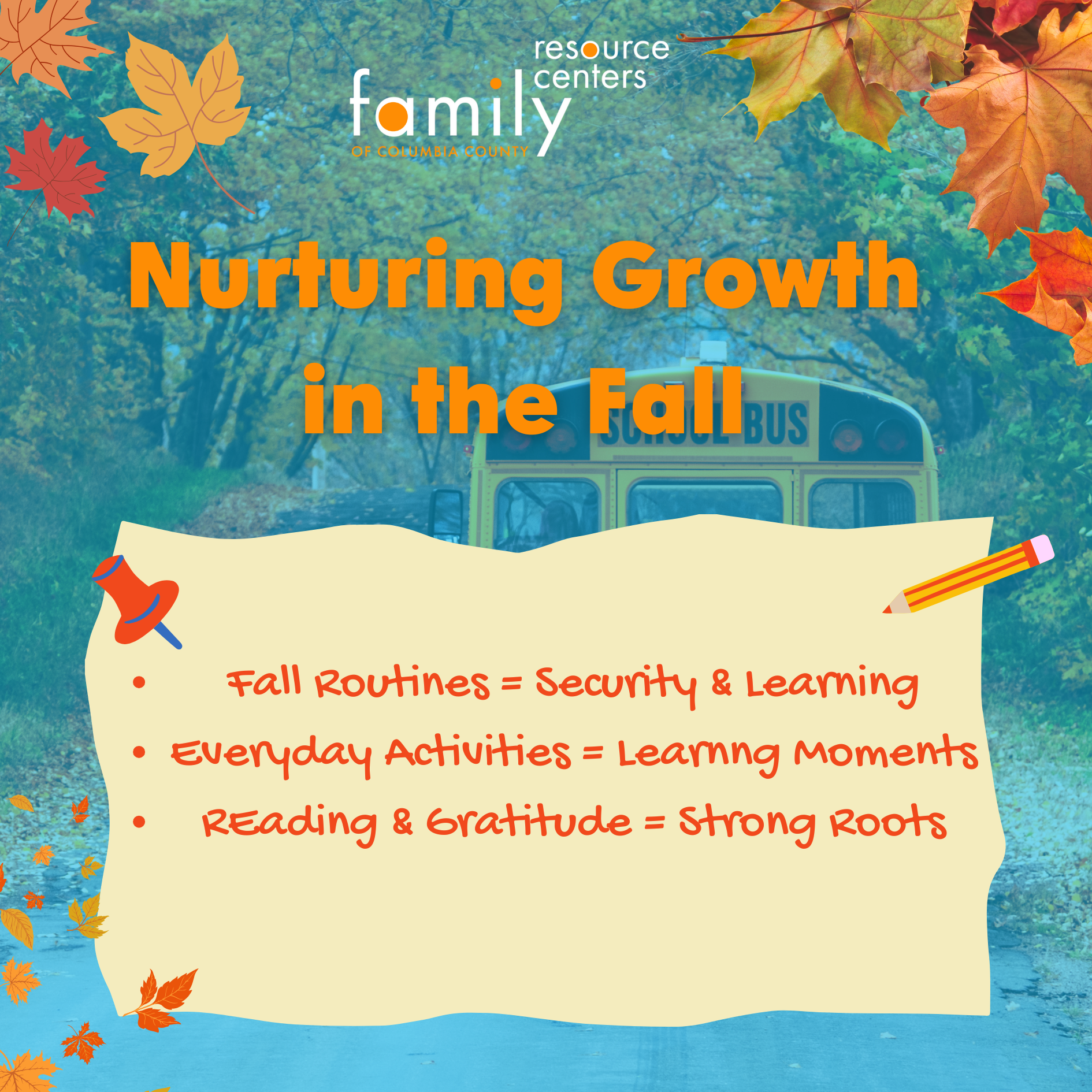
Nurturing Growth in the Fall: How Seasonal Routines Support Early Learning
As the days get cooler and the leaves begin to change, fall invites families to slow down, settle into new routines, and embrace opportunities for learning together. For young children, these seasonal rhythms are more than cozy traditions—they’re powerful building blocks for early development.

Screen Time & Little Minds: Setting Healthy Limits Without Guilt or Meltdowns
It’s summer. You’re tired. The dishes are piling up, someone’s whining for a snack again, and—let’s be honest—it’s just easier to hand over the tablet or turn on a show.
We get it. And you’re not a bad parent for using screens. Let’s say that again louder for the parents in the back: You’re not a bad parent for using screens. 💛

Building Self-Control from the Start: What Impulse Control Looks Like in Early Childhood (and What’s Totally Normal)
If you’ve ever told your toddler “No more cookies” and they immediately grabbed one anyway—welcome to life with a child under five! 😅
Self-control, or impulse control, isn’t something young children are born with. It’s a skill that develops slowly—very slowly—through everyday experiences, nurturing relationships, and consistent boundaries.

The Importance of Parallel Play: Why Toddlers Don’t Have to Share to Learn Social Skills
If you’ve ever watched a group of toddlers play side-by-side without talking much—or if your child has ever screamed “Mine!” when another child got too close—you’re not alone. Many parents worry that their toddler isn't playing “nicely” or doesn’t know how to share. But here's the truth: what looks like disinterest or selfishness is actually a healthy, developmentally appropriate stage of early social development…

Raising Emotionally Resilient Children: Building Big Feelings Skills in Ages 0–5
Parenting young children isn’t just about milestones like sleeping through the night or potty training — it’s also about nurturing the heart of your child. From birth to age five, kids are developing the foundation for emotional resilience: the ability to bounce back from setbacks, manage disappointment, and handle stress.
Here’s the good news: emotional resilience isn’t just something kids are born with. It’s something we, as parents and caregivers, can actively help them build.
Here’s how:

The Brain Behind the Breakdown
Tantrums. We've all been there—kicking, screaming, tears, and maybe even some dramatic floor flopping. It can be overwhelming, especially when you’re already stretched thin as a parent or caregiver. But here’s the truth: tantrums are not a sign of a “bad” child. They are actually a sign of growth—a glimpse into the powerful, developing brain of your little one.
Let’s take a moment to look beneath the surface of tantrums and talk about what’s really going on inside your child’s mind—and how you can support them through it.

Peaceful Nights, Rested Days: Gentle Sleep Training for Young Children
At the Family Resource Centers of Columbia County, we know how precious—and elusive—sleep can feel for families raising young children. Sleep challenges are common in the early years, but with a few mindful adjustments, families can build peaceful bedtime routines that support healthy development and more restful nights for everyone.
Here are some practical, Montessori-inspired tips to help families navigate sleep training from infancy through age five.

Potty Training: Real Talk & Montessori-Inspired Tips That Actually Work
Potty training doesn't have to be a power struggle. In this post, we're sharing real-life, Montessori-inspired tips that help your child gain independence while keeping the process calm and respectful. Whether you're just getting started or feeling stuck, these practical strategies will help you ditch the pressure and support your child with confidence.

Play Is the Best Way for Children to Learn
Play Is the Best Way for Children to Learn
Why play is more than just fun—and how it builds your child’s brain
If you’ve ever watched a child build a block tower, turn a cardboard box into a spaceship, or host a pretend tea party for their stuffed animals, you’ve seen something powerful in action: learning through play.

Your Child’s Brain Grows to 90% of Its Adult Size by Age 5 — Here’s Why That Matters
Your Child’s Brain Grows to 90% of Its Adult Size by Age 5 — Here’s Why That Matters
Did you know that by the time your child turns five, their brain will have reached 90% of its adult size?
This incredible growth doesn’t just mean their brain is getting bigger—it means it’s forming connections at lightning speed. These early years are when children build the foundation for how they will think, learn, feel, and interact with the world for the rest of their lives.
